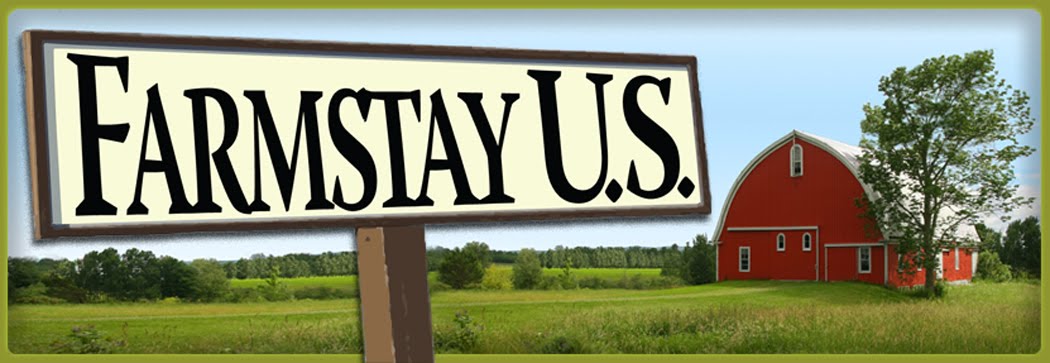I met Irene Lane last September at the International Ecotourism Conference. She recently launched an ecotourism website called Greenloons, and she got in touch with me to ask if she might write a guest post for The Farm Stay Project. Here are her compelling suggestions for ways that agritourism and ecotourism might be better integrated.
Michelle asked me to provide some suggestions for how organizations that promote agritourism can better cooperate with organizations that promote ecotourism considering consumer confusion about both types of tourism and the overlap of social and environmental goals.
As a manner of introduction, earlier this year I founded an ecotourism travel services company that specializes in offering independently certified, family-oriented ecotours. I became interested in ecotourism when I noticed my own young son’s wide-eyed fascination with nature whether we traveled across an ocean or across the state. Nothing delighted him more than visiting zoos, hiking through the wilderness, or kayaking through scenic waterways.
Consistently, my husband and I noticed the absolute wonder and amazement he had for the music, art, flora or fauna he saw in front of him. His wonder was almost always followed by an onslaught of illuminating questions about people and the natural world.
These were 'teachable moments' for my son that marked his personal growth, and it occurred to me that other families might benefit from an opportunity to experience nature in a way that would be educational, inspirational, safe and fun. In this way, agritourism and ecotourism are very similar. To answer the question at hand, there are some fundamental ways the industries can work together to promote our common sustainability goals, including:
- Incorporating farm stays into ecotourism itineraries
- Developing relationships with ecotour operators
- Targeting promotion to urban areas including international cities
- Promoting of the educational value of farm activities
Incorporating farm stays into ecotourism itineraries
Earlier this month, the University of Costa Rica published a study that discussed the agritourism and ecotourism marketing efforts in that country. Costa Rica has both strong agricultural traditions and a thriving ecotourism industry.
The study delineated some interested examples of how cross-industry promotional efforts have helped farmers as well as ecotour operators. These examples included incorporating ½ to full-day coffee plantation, traditional fishing, dairy, and pineapple tours. Ecotour itineraries featured local guides and accommodations as well as meals made with, of course, local ingredients.
Developing relationships with ecotour operators
With the exception of Alaska, the United States is relatively new to the concept to ecotourism and where there is chaos, in my opinion, there is opportunity. Ecotour operators are looking to provide their customers with unique experiences in the United States that will set them apart from the traditional mass-market tourism that has existed in this country. Therefore, it would be worthwhile for farm stay operators to contact ecotour operators (which I could help with) to see if the farm can be included as part of an itinerary (i.e. providing accommodation, providing local farm lunch, helping with some light conservation work, conducting a tasting of local farm products, attending a farm food festival).
Targeting promotion to urban areas including international cities
What is additionally interesting about the University of Costa Rica study is that the majority of agritourism visitors in Costa Rica are international visitors. Most of the locals did not see a need to pay for a rural experience since they could visit their relatives in the countryside. I think there is a marketing lesson here when promoting agritourism, namely to target urban populations and publications that have a critical mass of environmentally-conscious consumers. An example in the Washington, DC region is Flavor magazine, an independently run publication dedicated to sustainable food, gardening, local farmers, and organic restaurants.
Promoting the educational value of farm activities
Many school curriculums are beginning to incorporate the use of a school garden into their science, health, nutrition, and math lessons. What better way to bring these concepts to life than to have a designated farm stay school program that teaches about farm traditions and food production?
Basically, for both ecotourism and agritourism, it comes down to increased awareness and better perception of the industry’s economic, social, and environmental benefits. Since my family ecotour destinations company, Greenloons, has launched, the site has been phenomenally received. It’s been very exciting and proves that there is tremendous market potential for these unique, educational, and fun tour experiences.









.jpg)